|
 Secure Site
Secure Site
|
 |
Archive for the 'Now & Zen Alarm Clocks' Category
 Soaking Water, a powerful and restorative element in exquisite rituals throughout the ages, finds itself front and center in most spiritual rites of passage. Many cultures consider water essential for both physical and spiritual cleansing, and millions continue to embark upon quests to holy rivers and healing springs, drawn to water equally for its soothing properties as well as its promise of purification.
Perhaps this draw to water feels so instinctual because our brains, blood, and even our muscles are composed mainly of water. When we submerge ourselves, we return, in essence, to a deep, primordial connection with the world around us. Through the simple act of bathing, we can celebrate this ancient relationship between water and life. With minimal effort, a daily bath becomes a meditative and mystical experience, helping us to connect with our own inner wisdom.
“Mankind has used water to restore the physical, mental, and emotional body since ancient times,” says Barbara Close, founder of Naturopathica Holistic Health and author of Pure Skin: Organic Beauty Basics (Chronicle Books, 2005). “From the beginning, the use of water as a conduit or healing agent has existed for both its physical and emotional healing properties.”
Long before holy wells began to draw pilgrims or the custom of “taking the waters” became popular at lavish bathing halls in Europe, ancient cultures in Asia, Indonesia, and Mesoamerica had their own elaborate bathing rituals, which often involved the use of steam and ceremonial sound. Both the Aztec Temazcal and Mayan Zumbul-che wove in musical elements to signify the start of the cleansing ritual. In parts of today’s world, including Indonesia, Southeast Asia, and island nations of the Pacific, cultures still associate wells, springs, and rivers with the Goddess, the feminine principle, and birth. Women add flower petals to ritual water as an extra flourish, imbuing their bath with the powerful spiritual energy associated with native plants. In the Javanese bath ritual that prepares brides for their wedding night, attendants first scrub and exfoliate the skin with turmeric and then rub it with yogurt to soften it. A luxurious bath with flowers and petals follows, and only then is the bride deemed purity incarnate.
 soaking in sacred water “Each and every one of us, and every fragment of life on our planet, has an inner and outer relationship with water,” says Nadine Epstein, author (with Rosita Arvigo) of Spiritual Bathing: Healing Rituals and Traditions From Around the World (Celestial Arts, 2003). “The first living cells were formed in the salt bath of the sea, and I love imagining the blood that flows within us as a kind of internal sea. We are beings of water on a planet that is distinguished by its possession of water, the rushing waters that the early Jews called ‘living waters’ or mayyim hayyim.”
Ritual and renewal
You can connect with the healing energy of water by preparing your own spiritual bath at home. First order of business: Decide what you want to manifest in your life. The prospects run the gamut from the desire to release personal sadness or frustration to the hope of reducing global suffering. Next, establish the mood. The usual suspects, candles and incense, have traditionally been part of many prayer settings, but let your imagination run wild. Create an even richer ambiance by including specific music, scents, symbols, and images that resonate with your concept of the divine.
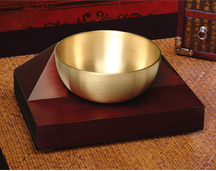 Set Your Singing Bowl Chime Timer for a Sacred Soak at Home “Personally, I love singing and chanting on the surface of the water, watching the ripples of my breath, and soaking up the sounds in the air,” says Epstein. “I’ve always been fascinated by sound waves and how they travel through solids, gases, and liquids. As a little girl, I remember my father, a physicist, mapping the trajectory of sound waves through crystals. The symmetries of these waves were and are a beautiful thing to behold. It all boils down to connecting with what the Maya call ch’ulel, the Chinese call chi, the Hindus call prana. Nearly every culture has a name for the subtle energies or vibrations that exist within us and beyond.”
Ultimately, only the reverence with which we enter the water matters. If we are receptive enough, our immersions can gradually wring a sea change upon our spirit, teaching us that we can learn as much from floating as we can from standing on firm ground.
Liquid Assets
By varying water temperature, length of soaking time, and what you add to the bath, you can create a variety of healing environments.
“Adding herbal extracts and essential oils can intensify the healing experience,” explains Barbara Close, herbalist, aromatherapist, and founder of Naturopathica. “Essential oils are lipophyllic—meaning that they repel water and are attracted to fat-based substances such as the adipose tissue that makes up human skin. Baths are one of the most effective ways to utilize the benefits of aromatherapy. In addition to cleansing, essential oils can be used for their decongestant, diuretic, and antiseptic properties, as well as the emotional benefits they offer in quieting or energizing the body.”
In her book, Pure Skin: Organic Beauty Basics, Close offers the following guidelines for optimal bathing.
To relax, relieve stress, and promote restful sleep: Water temperature should be warm, about 92 to 100 degrees. Add essential oil of rose, lavender, mandarin, or neroli to water, swirling to disperse, and soak for 20 to 30 minutes. Be sure to set your Zen Chime Clock to end your soaking practice.
To energize, renew, and revitalize: Water should be tepid to cool, with temperature ranging from 80 to 92 degrees. Add essential oil of rosemary, lavender, or grapefruit. Soak for 10 to 15 minutes.
For detoxification: Water temperature should be between 100 and 110 degrees. Add essential oil of juniper, lemon, cypress, or grapefruit to water. Submerge body for no more than five to eight minutes; then rest quietly and allow blood pressure to return to normal.
 Flower Bath Flower Baths
Recognizing plants as living, sentient beings, many cultures have traditions that involve bathing with flowers, such as the bridal preparation baths of Indonesia and the petal baths favored by the Incas. While easy to replicate, remember to use only organic flowers and herbs, as the pesticides and chemicals in conventionally produced botanicals may leach into your bath water and be absorbed through your skin. Whenever possible, gather the herbs and flowers yourself, giving appropriate thanks to the living plant as you harvest.
•• For an Incan bath as described in her book Spiritual Bathing, Nadine Epstein suggests gathering plants (the equivalent of a handful) on a sun-filled day between the hours of 11 a.m. and 4 p.m. Good choices include burdock, plantain, St. John’s wort, roses, zinnias, and marigolds or the leaves and flowers from herbs such as sage, thyme, and rosemary.
•• Place the flowers in a basin of water or other vessel that will accommodate 3 to 5 gallons of water. While chanting, reciting prayers, or setting a specific intention, gently squeeze the flowers with your hands, releasing their essence into the water. Allow the mixture to remain in the sunlight for several hours; then pour the water over your body in the shower or tub. (Be sure to cover your drain so that the plants don’t cause clogging.)
•• Appreciate the visual and olfactory pleasure of the plants. As Epstein says, “There is something hypnotic about the strikingly lovely, swirling, ever-changing patterns created by hollyhock and rose petals as they traverse the surface of water.”
adapted from Natural Solutions, March 2007 by Debra Bokur
 Zen Chime Clock Headquarter Store 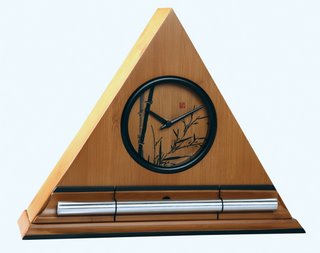 Bamboo Zen Alarm Clock with Chime Now & Zen’s Singing Bowl Alarm Clock Shop
1638 Pearl Street
Boulder, CO 80302
(800) 779-6383
Posted in Hot Springs, Now & Zen Alarm Clocks, Well-being
 Katsushika Hokusai Ukiyo-e, Japanese Iris There’s a good reason that people say you should “sleep on it” when facing a tough problem—it helps! A new study suggests dreaming is beneficial for problem solving. Psychology Today reports, “In REM sleep, cortical activation spreads from whatever one’s been pondering to marshal associated ideas, thanks to changes in levels of the neurotransmitters norepinephrine and acetylcholine.” Jasper Johns, Jack Nicklaus and many others have credited their dreams for successful ideas. A co-author of the study adds: “So many times, we already have the solution somewhere in our brain. It just needs an extra ‘boost’ before it can be accessed.”
adapted from Psychology Today by Elizabeth Ryan, October 2009
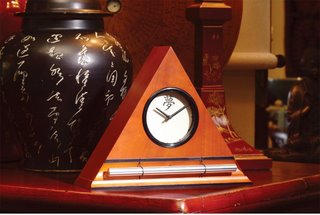 Zen Alarm Clock Now & Zen’s Alarm Clock Headquarter Store
1638 Pearl Street
Boulder, CO 80302
(800) 779-6383
Posted in Bamboo Chime Clocks, Chime Alarm Clocks, Japanese Inspired Zen Clocks, Natural Awakening, Now & Zen Alarm Clocks, Sleep Habits, Ukiyo-e, Well-being
 sleeping in can change your life Changing Your Life: Getting More Sleep Can Improve Your Health
By LARA SALAHI (@larasalahi1) and CHRISTINE BROZYNA
Researchers say lack of sleep is connected to cardiovascular disease, hypertension and high blood pressure. It also compromises the immune system, contributes to obesity and severely impairs mental judgment.Dieting might be more difficult too. Recent findings also show that when you are sleep deprived, your body actually boosts production of the hormone that makes you hungry.
But research suggests that getting just one extra hour of sleep each night could dramatically affect your health. In fact, researchers from the University of Chicago found that those who bumped up their hours of sleep, from 6 to 7 hours had a 33 percent decreased chance of having clogged arteries.
Just the anticipation of an alarm clock jolting you awake can contribute to poor sleep habits and the lose of sleep. Using a soothing, chime alarm clock will help you avoid this anxiety. The maker’s of the Zen Alarm Clock have mastered this with the production of their entire line of soothing, Chime and Gong Alarm Clocks with real acoustic sounds.
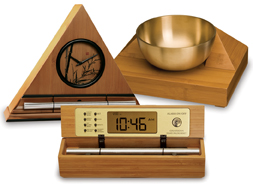 Soothing chime and gong alarm clocks by Now & Zen, Inc. Now & Zen, Inc.
1638 Pearl Street
Boulder, CO 80302
(800) 779-6383
Posted in Bamboo Chime Clocks, Now & Zen Alarm Clocks, Well-being
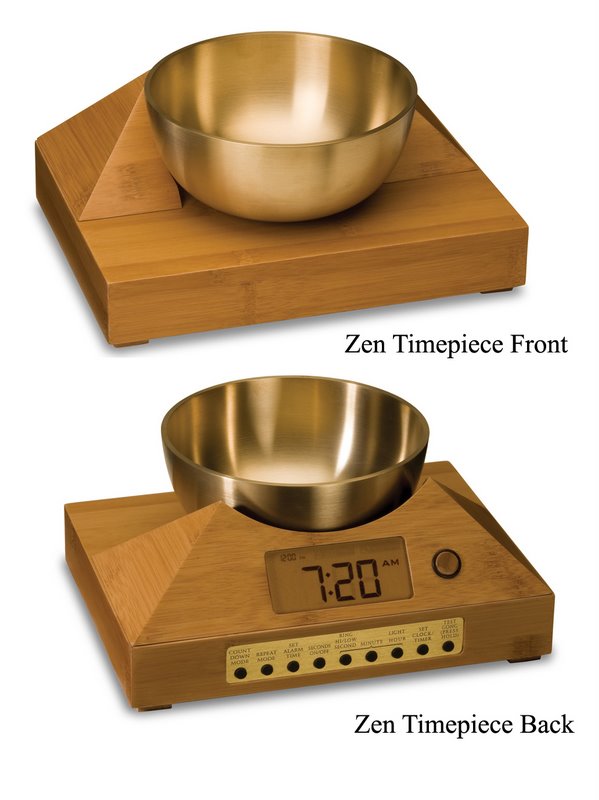 gong and chime alarm clocks are the best gentle alarm clocks Boulder, Colorado—an innovative company has taken one of life’s most unpleasant experiences (being startled awake by your alarm clock early Monday morning), and transformed it into something to actually look forward to. “The Zen Alarm Clock,” uses soothing acoustic chimes that awaken users gently and gradually, making waking up a real pleasure.
What makes this gentle awakening experience so exquisite is the sound of the natural acoustic chime, which has been tuned to produce the same tones as the tuning forks used by musical therapists. According to the product’s inventor, Steve McIntosh, “once you experience this way of being gradually awakened with beautiful acoustic tones, no other alarm clock will ever do.”
 change your alarm clock, Now & Zen Alarm Clock Shop - Boulder, CO Now & Zen – The Gong & Chime Alarm Clock Store
1638 Pearl Street
Boulder, CO 80302
(800) 779-6383
Posted in Bamboo Chime Clocks, Now & Zen Alarm Clocks
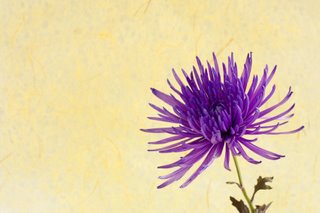 zen koans One day as Manjusri stood outside the gate, the Buddha called to him, “Manjusri, Manjusri, why do you not enter?” Manjusri replied, “I do not see myself as outside. Why enter?”
–from “Zen Koans” By Venerable Gyomay Kubose
Now & Zen
1638 Pearl Street
Boulder, CO 80302
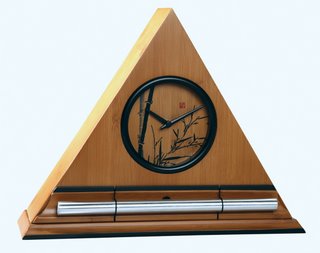 zen alarm clock with soothing sounds
Posted in Bamboo Chime Clocks, Now & Zen Alarm Clocks
 Sleep your way to a better health with The Zen Alarm Clock A good night’s rest can help you lose weight, beat depression, and ward off heart disease.
People think sleep is a waste of time,” says James P. Krainson, M.D., director of the South Florida Sleep Diagnostic Center in Miami. “But they don’t realize that sleep will make them more productive.” It will also help you improve your memory, shed postpregnancy pounds, and stave off obesity, heart disease, and diabetes. Dozens of studies support the notion that sleep is just as important for maintaining good health as diet and exercise. For example, a study published in the journal Sleep found a relationship between short sleep and increased diabetes risk. Other studies found a lack of sleep can exacerbate pain, cause mood disturbances, and even increase the risk of gum disease.
Your wake-up call. If results from a 2007 Sleep in America poll are anything to go by, too many women are risking their health from lack of sleep. Conducted by the National Sleep Foundation (NFS), last year’s poll revealed that 60 percent of American women get a good night’s sleep only a few nights per week or less. Apparently, when women are pressed for time—which, let’s face it, is every day—sleep is usually the first thing to go.
Take back the night. With health benefits that important, you can’t ignore those eight hours of shuteye any longer. To help you get back in bed and waking up well rested, we looked at four sleep ailments—and discovered some surprisingly effortless solutions.
THE PROBLEM: No time
Recent research at the University of Pennsylvania, published in 2007 in Sleep, says our work-driven culture keeps us from getting the rest we need. Among the findings: The more time we spend working and com- muting, the less time we spend in bed. Even when we know that get- ting more sleep will make us feel better, it usually isn’t enough to keep us from burning the candle at both ends, says Michael Breus, Ph.D., sleep expert and author of Beauty Sleep: Look Younger, Lose Weight, and Feel Great Through Better Sleep (Plume, 2007). What’s required, Breus says, is a plan for making sleep a priority:
Set your ZenAlarm Clock for sleep. Set your alarm to go off an hour before you want to go to sleep. The alarm is your cue to start getting ready for bed.
Wind down for an hour. Take 20 minutes to shut down the house for the night and prepare for the next morning. Spend the next 20 minutes doing your usual evening ablutions like washing your face, brushing your teeth, and changing into your pj’s. For the final 20 minutes, relax and meditate in bed. That’s it. No work, reading, e-mails, phone calls, paying bills, or getting into a discussion with your partner about your health, finances, or relationship during your power-down hour, says Breus. “Avoid any activity that gets your mind revved up before you go to bed,” he advises.
Create a sleep sanctuary. “I’ve gone into bedrooms of people who say they can’t sleep, and they’ve got a computer in there, a TV, a huge pile of laundry on the floor,” says Breus. The question then becomes, according to Breus, not “Why can’t I sleep?” but “How could I sleep under these circumstances?” To transform your bedroom, Breus recommends moving the computer and the TV out of the room and clearing out the clutter. “You want to create an area that’s flowing and positive,” he writes in his book Beauty Sleep.
Adapted from Natural Health Magazine, July 2010 by Susan Hayes
 Sleep your way to better health and wake up gently with a Zen Clock
Posted in Bamboo Chime Clocks, Chime Alarm Clocks, Goodness, Natural Awakening, Now & Zen Alarm Clocks, Sleep Habits
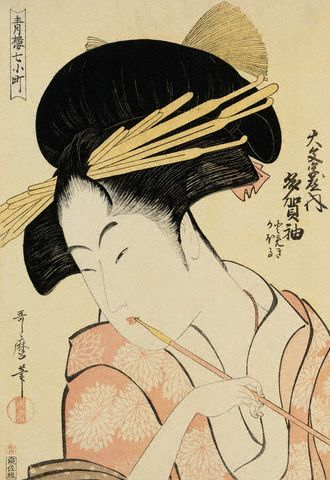 Utamaro Portrait of the Courtesan Shirotama of the Tamaya 1790 Now & Zen has created a unique wellness gifts that will delight that someone special. The Zen Alarm Clock® and The Digital Zen Alarm Clock® are lifestyle timepieces that really impact people’s lives — they provide a gentle and gradual awakening with Tibetan bell-like acoustic chimes. But more than alarm clocks, these products also serve as aesthetically beautiful timers for practices such as yoga, bodywork, and meditation.
Zen Alarm Clocks are an aesthetic accouterment to almost any wellness practice. We have been featured in many mainstream media outlets including Good Morning America, GQ Magazine, The New York Times, American Spa, and The L.A. Times. These beautiful personal timers are a perfect wellness gift.
We have sold over 100,000 of our original triangular-shaped Zen Clocks (and sales continue to grow every year largely through word-of-mouth), and our Digital Zen Alarm Clocks (winner of the Denver Business Journal’s Most Innovative New Consumer Product Award) are continuing to be the favorite in independent retail channels nationwide.
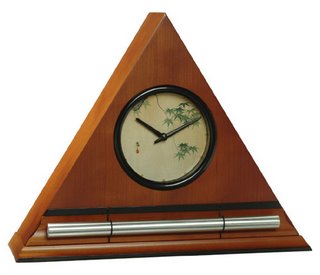 Japanese Leaves Zen Alarm Clock by Now & Zen, Inc. Now & Zen’s Wellness Alarm Clocks and Timers Store
1638 Pearl Street
Boulder, CO 80302
Posted in Japanese Inspired Zen Clocks, Meditation Timers, Meditation Tools, Natural Awakening, Now & Zen Alarm Clocks, Progressive Awakening
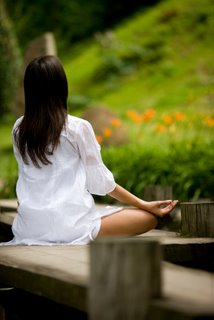 meditation Science has proven that meditating actually restructures your brain and can train it to concentrate, feel greater compassion, cope with stress, and more. Read the latest research and put it into practice.
Yoga citta vritti nirodhah. Yoga is the ending of disturbances of the mind. (Yoga Sutra, I.2)
Nothing is quite as satisfying as a yoga practice that’s filled with movement. Whether you prefer an intense and sweaty vinyasa practice, a gentle but deliberate Viniyoga practice, or something in between, all systems of hatha yoga provide a contented afterglow for the same reason: You sync your movement with your breath. When you do, your mind stops its obsessive churning and begins to slow down. Your attention turns from your endless to-do list toward the rhythm of your breath, and you feel more peaceful than you did before you began your practice.
For many of us, accessing that same settled, contented state is more difficult to do in meditation. It’s not easy to watch the mind reveal its worries, its self-criticism, or its old memories. Meditation requires patience and—even more challenging for most Westerners—time. So, why would you put yourself through the struggle?
Quite simply, meditation can profoundly alter your experience of life. Thousands of years ago the sage Patanjali, who compiled the Yoga Sutra, and the Buddha both promised that meditation could eliminate the suffering caused by an untamed mind. They taught their students to cultivate focused attention, compassion, and joy. And they believed that it was possible to change one’s mental powers and emotional patterns by regularly experiencing meditative states. Those are hefty promises.
But these days, you don’t have to take their word for it. Western scien-tists are testing the wisdom of the masters, using new technology that allows researchers to study how meditation in-fluences the brain.
The current findings are exciting enough to encourage even the most resistant yogis to sit down on the cushion: They suggest that meditation—even in small doses—can profoundly influence your experience of the world by remodeling the physical structure of your brain.
Our Zen Timepiece’s acoustic 6-inch brass bowl-gong clock is the world’s ultimate alarm clock, practice timer, and “mindfulness bell.”
It fills your environment with beautifully complex tones whenever it strikes. In the morning, its exquisite sounds summon your consciousness into awakening with a series of subtle gongs that provide an elegant beginning to your day. Once you experience the Zen Timepiece’s progressive awakening, you’ll never want to wake up any other way. It also serves as the perfect meditation timer.
adapted from Yoga Journal, By Kelly McGonigal
 Meditation Timers with Tibetan-Singing Bowls Now & Zen
1638 Pearl Street
Boulder, CO 80302
(800) 779-6383
Posted in Bamboo Chime Clocks, Chime Alarm Clocks, intention, Meditation Timers, Meditation Tools, mindfulness practice, Now & Zen Alarm Clocks, Zen Timers
 why meditation works By MAIA SZALAVITZ
The image of the ancient but youthful-looking sage meditating on a mountaintop might be closer to reality than you think, according to a new study that found that after a three-month stay at a meditation retreat, people showed higher levels of an enzyme associated with longevity.
The study is preliminary and didn’t show that meditation actually extends life, but the findings suggest a possible means by which it could.
Researchers led by Tonya Jacobs of the University of California-Davis compared 30 participants at a meditation retreat held at the Shambhala Mountain Center in Colorado with matched controls on a waiting list for the retreat. Participants meditated six hours per day for three months. Their meditation centered on mindfulness — for instance, focusing solely on breathing, in the moment — and on lovingkindness and enhancing compassion towards others. (More on Time.com: Empathy Beats Bullies)
After the three-month intervention, researchers found that the meditators had on average about 30%* more activity of the enzyme telomerase than the controls did. Telomerase is responsible for repairing telomeres, the structures located on the ends chromosomes, which, like the plastic aglets at the tips of shoelaces, prevent the chromosome from unraveling. Each time a cell reproduces, its telomeres become shorter and less effective at protecting the chromosome — this, researchers believe, is a cause of aging. As the chromosome becomes more and more vulnerable, cell copying becomes sloppier and eventually stops when the telomeres disintegrate completely. Telomerase can mitigate — and possibly stop — cell aging.
“Something about being on a retreat for three months changed the [amount of] telomerase in the retreat group,” says Elizabeth Blackburn, a study author who has won a Nobel Prize for her previous work on telomerase. “We didn’t prove that it was meditation [that caused the change]. A lot of things happened during the retreat. But the interesting thing was that the changes we saw tracked quantifiably with the change in people’s psychological well-being and outlook.”
 meditating on a rock In other words, people with higher levels of telomerase also showed more increases in psychological improvement. In retreat participants who showed no psychological change, telomerase levels were not any higher than in controls. (Researchers were unable to compare telomerase levels in the groups both before and after the retreat for logistical reasons.)
“It’s a very good study with interesting results in terms of health implications,” says Alan Marlatt, a professor of psychology at the University of Washington who has studied meditation for decades but was not associated with this research.
Of course, the relationship between health and telomerase is complex. In a recent study in mice by Harvard researchers, they found that boosting levels of telomerase reversed signs of aging, restoring graying fur and fertility, increasing brain size and sharpening scent perception. Too much telomerase activity can also be a problem, however. A cell that reproduces endlessly sounds like a good thing at first — that cell would be immortal. But this is exactly what happens with cancer cells — infinite replication. “If telomerase levels go too far up, that’s [associated with] cancer,” says Clifford Saron, associate research scientist at the University of California-Davis Center for Mind and Brain and a co-author of the new paper. He notes, however, that the difference is one that is orders of magnitude higher—so that meditation could not possibly cause cancer*.
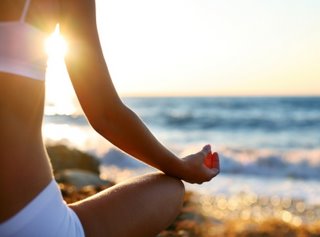 Woman meditating on the beach at sunset So how does meditation affect the machinery of cellular reproduction? Probably by reducing stress, research suggests. Severe psychological stress — particularly early in life and in the absence of social support — has been linked with poorer health, increasing risk for heart disease, stroke and some cancers. This is likely due to the negative effects of high levels of stress hormones on the brain and body. By reducing stress hormones, perhaps meditation contributes to healthier telomeres.
In a study published a few years ago in Lancet Oncology, researchers compared 30 men before and after adopting lifestyle changes following a diagnosis of low-risk prostate cancer. The patients started meditating, switched to a healthy plant-based diet, exercised and attended a support group. Like the new study, the Lancet Oncologypaper found increases in telomerase linked with reduced psychological distress.
“The mind has a big influence on the body. If you get anxious, your heart beats faster and your stomach churns,” says Blackburn. “But we don’t know yet [if meditation is linked to] a reduction in stress hormones. The physiology is very complex.”
Recent evidence supports a connection: a study published this month in the Archives of General Psychiatry showed that mindfulness meditation can reduce relapse in patients who recovered from depression just as well as antidepressants.
Of course, the increases in telomerase seen in the current study could be due to some other unknown factor that separates the meditators from the controls. That’s another reason why it’s too early to suggest that stress-reducing mind-body interventions like meditation be prescribed as a treatment for any diseases or disorders. The study also did not show that meditation actually extends life, only that it may increase the activity of an enzyme that is associated with longevity.
Still, research on meditation is expanding dramatically, with studies finding it helpful for pain, depression, addiction and many other conditions. “There’s a very exciting dialogue going on,” Marlatt says of the research. “It works for many different kinds of clinical problems. It’s very promising.”
That noise you hear in the background? Millions of new meditators chanting, “Om.”
adapted from Time Magazine, Dec. 2010
Use our unique “Zen Clock” which functions as a Yoga Timer. It features a long-resonating acoustic chime that brings your meditation or yoga session to a gradual close, preserving the environment of stillness while also acting as an effective time signal. Our Yoga Timer & Clock can be programmed to chime at the end of the meditation or yoga session or periodically throughout the session as a kind of sonic yantra. The beauty and functionality of the Zen Clock/Timer makes it a meditation tool that can actually help you “make time” for meditation in your life. Bring yourself back to balance.
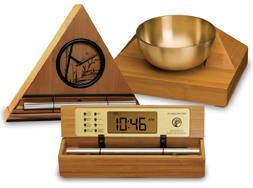 meditation timers with singing bowl chime Now & Zen’s Meditation Timer Store
1638 Pearl Street
Boulder, CO 80302
(800) 779-6383
Posted in Bamboo Chime Clocks, Chime Alarm Clocks, Now & Zen Alarm Clocks, Zen Timepiece by Now & Zen
 Bedtime meditation No need to be mystified by meditation, says Steven Hartman, director of professional training at Kripalu Center for Yoga and Health. To ease into a practice, try this simple mantra-based technique. Set your Zen Timer with Bowl gong for five to 10 minutes right before bed.
1. Lying on your back, close your eyes and notice your breath.
2. As you inhale, focus on a soothing phrase, such as “I am safe and whole.” You can say it aloud or in your mind. When exhaling, silently repeat the mantra. The specific phrase isn’t that important, says Hartman; the mantra’s purpose is “to give your mind something simple to focus on.”
3. If your mind wanders, gently turn your attention back to your breath and back to the mantra.
Adapted from Body + Soul Magazine, April 2008
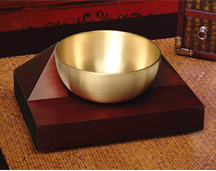 Zen Timer for Meditation with Singing Bowl
Now & Zen
1638 Pearl Street
Boulder, CO
Posted in Bamboo Chime Clocks, Chime Alarm Clocks, Meditation Timers, Meditation Tools, mindfulness practice, Natural Awakening, Now & Zen Alarm Clocks, Sleep Habits, Well-being
« Previous Page — « Previous Entries
Next Entries » — Next Page »
|
|
|
|